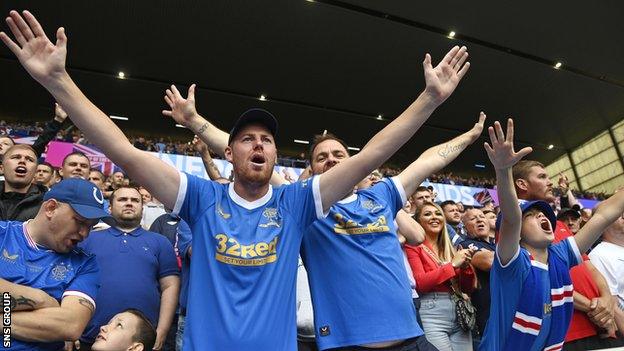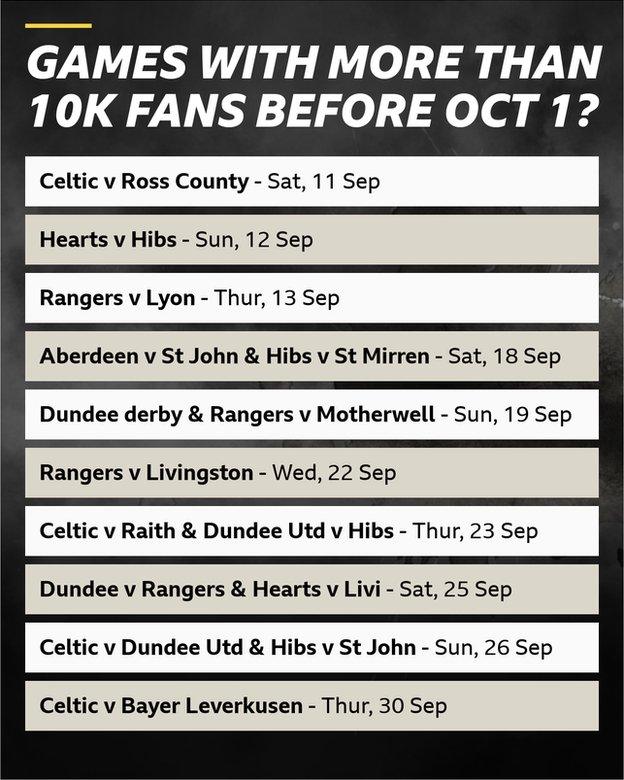Vaccine passports: Scottish football fans group 'concerned' some supporters excluded
- Published

Matches at Ibrox, Celtic Park and Hampden are among those for which fans will have to be fully vaccinated
A Scottish fans group are "concerned" that introducing Covid-19 vaccine certification for football matches will exclude some supporters from games.
MSPs have approved plans requiring fans to prove they are double-jabbed before attending matches hosting more than 10,000 people.
The rules will come into force from 1 October.
"We are concerned about inequalities," says Alan Russell, chief executive of Supporters Direct Scotland.
"So excluding people through their vaccination status rather than medical status and their risk. There are differences in levels of vaccination in different sections of society and football support.
"However, vaccination levels are pretty high in Scotland. So we think it's going to be a very small number of people who are excluded for those reasons. But even if that's one, then it's a concern."
The SPFL and Scottish FA joint response group has mooted a system of spot-checks rather than "blanket inspections of everyone attending games".
The governing bodies cited the "risk of health and safety issues and crowd disorder if fans are delayed getting into stadiums".
Hearts v Motherwell on Saturday, 2 October, and Aberdeen v Celtic and Rangers v Hibernian the following day will be the first games where fans need a vaccine passport.
Scotland's home World Cup qualifier against Israel - which is already sold out - on 9 October will also require proof of vaccination.
The Scottish government wants to introduce vaccine passports to try to control the spread of coronavirus, while also encouraging younger people to get vaccinated.
People will be able to download an app to prove their status from 1 October, or receive a printed copy.
Children under 18 and those who cannot get the vaccine for medical reasons will be exempt from the plans.
When the government initially announced its intentions earlier this month, SPFL chief executive Neil Doncaster said there would be "significant unintended consequences" for clubs.
Among the concerns he voiced was how they deal with unvaccinated fans who have already purchased season tickets and Russell believes communication with supporters will be key.
"If we're able to help them so they're able to understand the risks of the vaccine better, so they're more comfortable with getting vaccinated, I think that's good for everybody," he said.
"If this is part of keeping football accessible to almost everybody, then it's a pragmatic and largely positive step - but we do worry about those inequalities.
"To have people prevented from attending football, or having to get a vaccination they're not comfortable with, or don't know how it's going to interact with other medications they're on, is a pretty difficult situation."
